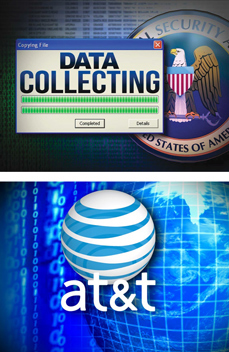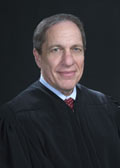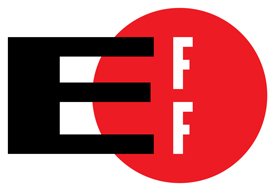Secret report cited in NSA surveillance lawsuit, gov’t silent on its existence
By RT.com | Last updated: Dec 31, 2014 - 8:55:43 AMWhat's your opinion on this article?

|
The hearing, requested by the Electronic Frontier Foundation (EFF) for a partial summary judgment, concerns the class action lawsuit, Jewel v. NSA, which was filed six years ago. It claims the National Security Agency (NSA) acquired AT&T customers’ e-mail and other data using surveillance devices attached to the company’s network.
U.S. District Judge Jeffrey White heard arguments from both sides in order to meet the plaintiffs’ July 2014 motion for a partial summary judgment on whether the government is “violating the Fourth Amendment by their ongoing seizures and searches of plaintiff’s Internet communications.” He presented both sides with a list of 12 questions.
Civil rights advocates say the NSA is illegally searching and seizing Americans’ internet communications and argue the alleged surveillance is unconstitutional.

U.S. District Judge Jeffrey White
|
Judge White asked Atty. Wiebe what evidence there was that all international communications were gathered—and not just communications with suspected terrorists or hot spots.
Atty. Wiebe cited a top-secret 2009 report by the NSA inspector general detailing the government’s email and internet data collection, originally published by The Guardian. Other documents, including AT&T’s first surveillance transparency report, published earlier this year, provide evidence of the program’s reach, he said.
James Gilligan, a Department of Justice attorney, said the government had never confirmed nor denied the existence of the secret 2009 report, and added that AT&T’s report only relates to the legal court orders received under the Foreign Intelligence Act.
The judge also asked whether the government was seeking an easy out by simply saying its data filtering was “automatic.”
“It’s concerning that, given the digital age, if the government can’t do something directly, but can do it by a machine, does that open the door to get around whether there was illegal search and seizure?” he said.
The government says the plaintiffs don’t have enough information about the NSA’s classified spying technique to make a valid case.
“[Plaintiffs] don’t even know the communications exist because they are electronically scanned and having been found not to have targeted selectors are destroyed in a flash before any human review,” Mr. Gilligan told the court, according to courthousenews.com.

Electronic Frontier Foundation (EFF) logo
|
The evidence in the case stemmed from materials leaked by former San Francisco AT&T technician Mark Klein in 2006. The government maintains the plaintiffs have no standing and cannot establish it “without the risk of grave damage to national security.”
Judge White said he is being “very careful” in court not to disclose the classified material that’s been submitted by the government. (RT.com)
INSIDE STORIES AND REVIEWS
-
-
About Harriett ... and the Negro Hollywood Road Show
By Rabiah Muhammad, Guest Columnist » Full Story -
Skepticism greets Jay-Z, NFL talk of inspiring change
By Bryan 18X Crawford and Richard B. Muhammad The Final Call Newspaper @TheFinalCall » Full Story -
The painful problem of Black girls and suicide
By Charlene Muhammad -National Correspondent- » Full Story -
Exploitation of Innocence - Report: Perceptions, policies hurting Black girls
By Charlene Muhammad -National Correspondent- » Full Story -
Big Ballin: Big ideas fuel a father’s Big Baller Brand and brash business sense
By Bryan Crawford -Contributing Writer- » Full Story






 Click Here Stay Connected!
Click Here Stay Connected!








